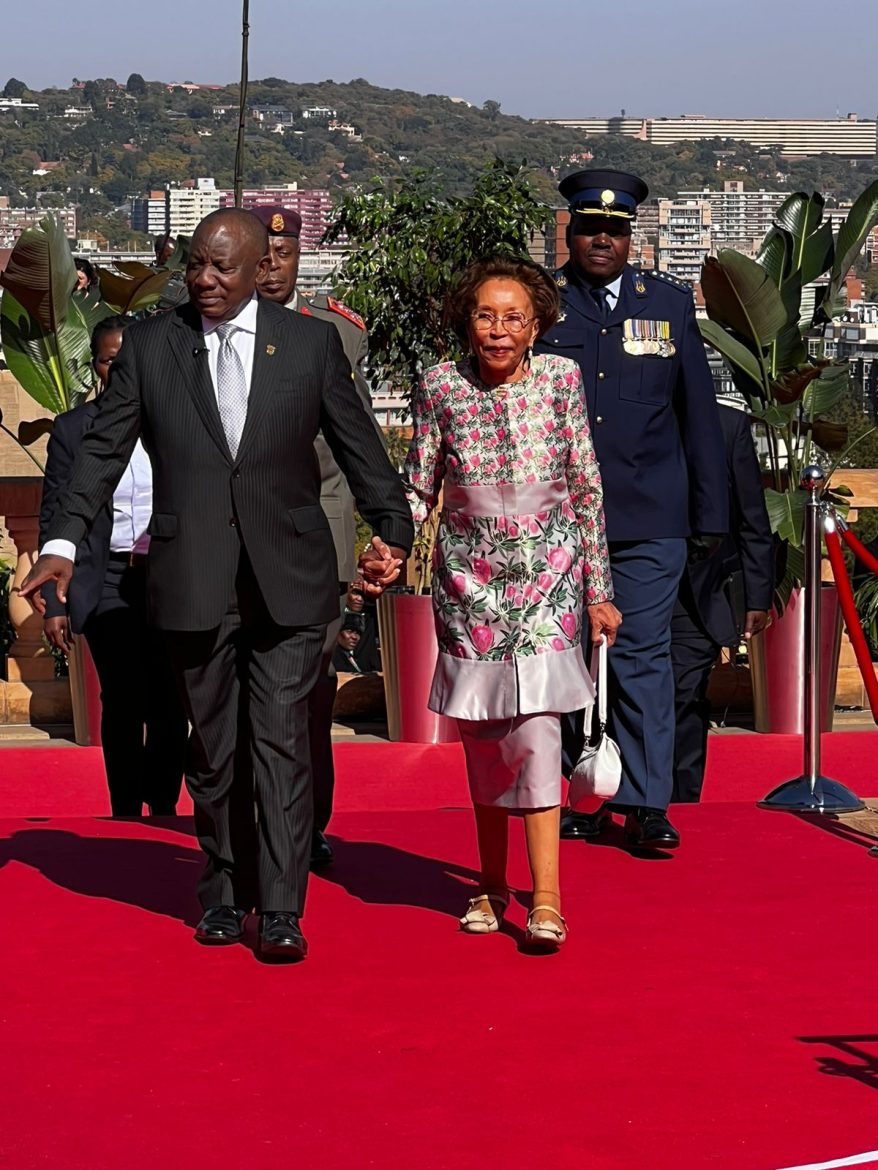President Ramaphosa’s Inauguration speech details GNU Statement of Intent
By: Natasha Archary

President Matamela Cyril Ramaphosa detailed the Government of National Unity’s (GNU) Statement of Intent during his Inauguration Speech at the Union Buildings in Pretoria on Wednesday, 19 June.
Ramaphosa, who was re-elected for a second term in office by Parliament on Friday, 14 June 2024, spoke about key commitments the GNU have agreed to, and touched on his party losing a majority of the vote for the first time since the African National Congress (ANC) rose to power.
“As we enter another era in the life of our nation, the resilience of our democracy has once more been tested and the people have spoken loudly that they choose peace and democracy over violent, undemocratic and unconstitutional methods.
In their multitude, in voices that are many and diverse, the people of South Africa have voted and made known their wishes, their concerns and their expectations.
We accept and respect the results of the elections and we once again say the people have spoken. Their will shall be done without any doubt or question.
The voters of South Africa did not give any single party the full mandate to govern our country alone.
They have directed us to work together to address their plight and realise their aspirations.
They have expressed their appreciation of the progress in many areas of their lives over the past 30 years of democracy.
They have also been unequivocal in expressing their disappointment and disapproval of our performance in some of the areas in which we have failed them.
They want a transformed, growing and inclusive economy that creates jobs for millions of job seekers and offer business opportunities to all entrepreneurs in our nation – women and men, young and old.
The people have been clear about what they want.
The formation of a government of national unity is a moment of profound significance. It is the beginning of a new era.
As the leaders of this country came together in a government of national unity 30 years ago to forge a common future and build a united nation, the parties in the government of national unity of today have agreed to work together to address the most pressing challenges before our nation.
The parties have adopted a Statement of Intent, in which they have committed to pursue rapid, inclusive and sustainable economic growth;
to create a more just society by tackling poverty;
to safeguard the rights of workers;
to stabilise government and to build state capacity.
The parties have made a commitment to invest in South Africa’s people through quality education and health care;
to address crime and corruption;
to strengthen social cohesion and build a united nation; and,
to pursue a foreign policy based on human rights, solidarity and peace.”
President Cyril Ramaphosa’s Inauguration Speech
In the presence of everyone assembled here, and in full realisation of the high calling I assume as President of the Republic of South Africa, I, Matamela Cyril Ramaphosa swear that I will be faithful to the Republic of South Africa, and will obey, observe, uphold and maintain… pic.twitter.com/sQW9lsgWaf
— Cyril Ramaphosa 🇿🇦 (@CyrilRamaphosa) June 19, 2024
Five parties have officially signed the Statement of Intent to participate in the GNU.
These parties are the ANC, Democratic Alliance (DA), Inkatha Freedom Party (IFP), GOOD, and the Patriotic Alliance (PA).
This collective represents 273 seats in the National Assembly (NA) or 68% of the seats in the NA.
Discussions with other parties are ongoing in the spirit of inclusivity. The ANC once again takes this opportunity to invite political parties who resolved to define themselves outside this effort to reconsider and join the GNU.
Also read: WATCH LIVE: Presidential Inauguration at the Union Buildings
Written by: Natasha
GNU Government of National Unity Inauguration Speech President Cyril Ramaphosa Statement of Intent
Similar posts
MORE ARTICLES

In Pictures: Mzansi Celebs serve style and drama at Durban July 2025

Five killed in KZN crash allegedly caused by Polo driver

From Benin to the world: Kidjo makes history as first black African on Hollywood Walk of Fame

Drama, cheating and Surprise guest: RHOD reunion delivers shocking revelations

Why Waterfall Estate’s 99-year lease is practically forever
QUICK LINKS
UpComing Shows

Touch of Soul
With T Bose
Kaya 959 takes back Sundays with A Touch of Soul, the only show bringing you soul and RnB music that touches your mind, body and spirit. The Best T in the City, T-bose takes you back to a time when music was made to last. A Touch of Soul is the perfect wind-down to your weekend. Sundays 14h00 to 18h00.
close
The Jazz Standard
with Brenda Sisane
The Jazz Standard with Brenda Sisane. Sunday's 12:00-15:00.
close
Spade of Hearts
With Xola Dlwati
WITH XOLA DLWATI: SATURDAYS 12:00 -15:00 Spade of Hearts is a fuse of love and soulful sounds, pulling at your heartstrings. Tune in for songs that will take you down memory lane. It is the sound that once dominated your playlist. It airs Sundays 12:00 – 15:00.
close
The World Show
With Nicky B
The World Show is informative, expansive, and largely pan-African. This is a musical journey that bridges generations and genres, travelling across continents and timelines, with in-depth interviews and features. ‘The World Show’ is a four-hour global journey through sound – featuring the freshest tracks from home and afar.
close
959 Music Weekdays
Kaya 959 Hits
Real. Familiar. Memorable. Kaya 959 brings you the music you know and love from our playlist. Uninterrupted. Thursdays 20h00 to 21h00
closeConnect with Kaya 959
DownLoad Our Mobile App
© 2025 Kaya 959 | On The Street On The Air









